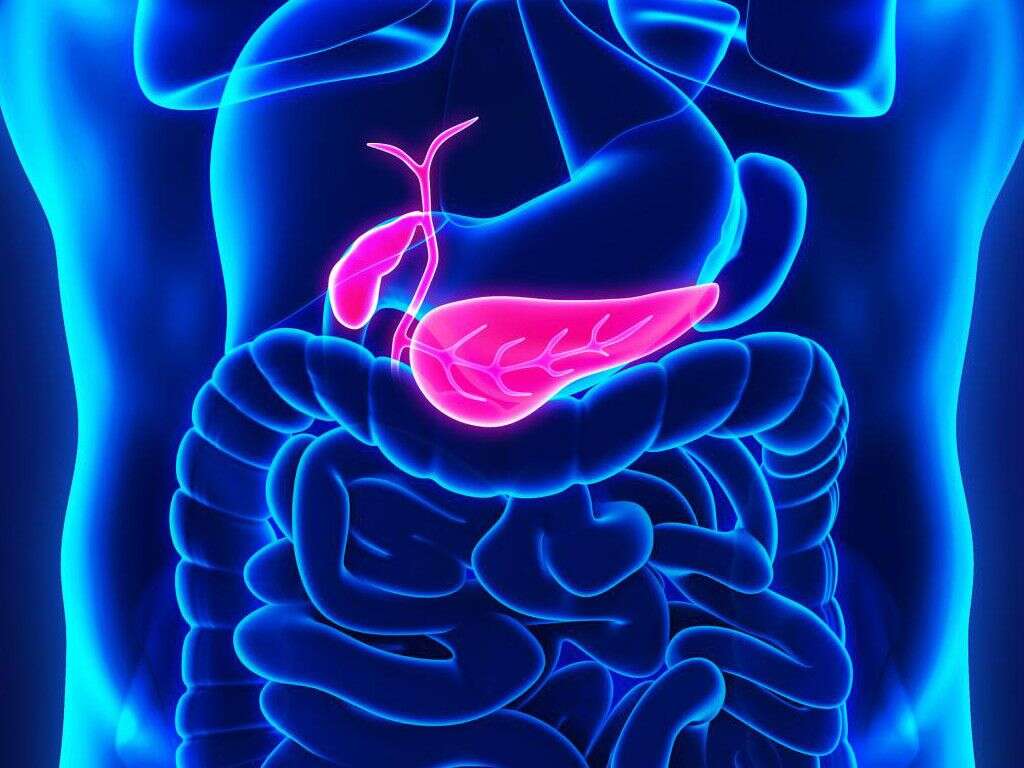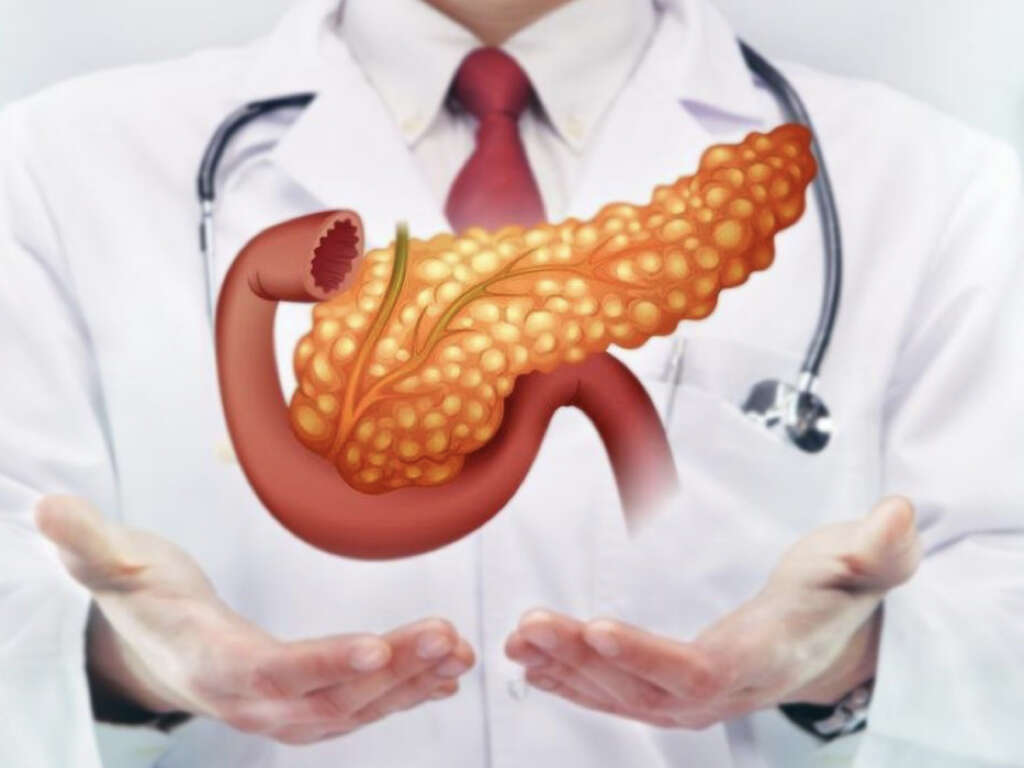What Does the Pancreas Do?
8. Glucagon Hormone
Glucagon is a hormone synthesized by pancreatic alpha cells, in response to hypoglycemia or a low concentration of glucose in the blood (i.e. fasting). Conversely, high plasma glucose (hyperglycemia) is its most important inhibitor.
The primary target for glucagon action is the liver, where it increases glycogenolysis (break-down of glycogen into glucose) and gluconeogenesis (de novo synthesis of glucose) in order to release glucose into the bloodstream. It also increases the production of ketone bodies and decreases lipogenesis (triglyceride synthesis) in the liver. As you can probably notice by now, this means that glucagon does the exact opposite of what insulin does. Glucagon and insulin work “together” to control blood sugar levels.
Advertisement












